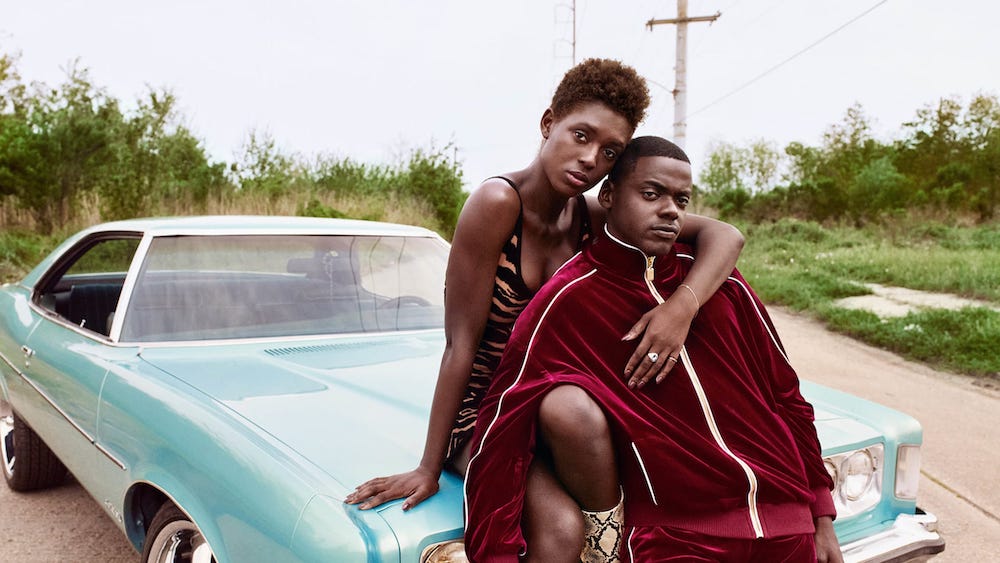If you’re interested in sharing your opinion on any cultural, political or personal topic, create an account here and check out our how-to post to learn more.
____
She and I both knew what it was when we were pulled into the office separately and told to stop looking out for each other. “Just worry about yourself,” our supervisor said.
But how could I do that? How could she?
The night before our meetings with management, my friend had an outburst while closing the store. We were mostly all on shift and everyone was upset because our manager was downstairs eating while we were merchandising, restocking dresses and spacing each hanger individually — finger spacing is what they call it in retail. One of the most outspoken of us all (second probably only to me), I began to immediately calm her down. The next day, I was accused of provoking her.
She wasn’t my Queen nor I her Slim, but on any given Beale Street, we would be considered “play brother and sister,” made apparent when we would greet each other.
“Hey Bro” and “Hey Sis” came as easily to the both of us as sugar in Kool Aid at a Black barbecue on Labor Day.
Going into the stock room to pull dresses for a customer only a week into the job, I heard someone blasting “Don’t Touch My Hair,” my favorite song from Solange’s Black-powered album, A Seat At The Table. I began to ask who was playing it, but before I could finish the question, my friend and I locked eyes and we smiled.
There were no words, her melanin felt my melanin. Quickly, she became by sister and I her brother.
They didn’t like when we got together, which was made clear when our lunch breaks started getting scheduled at different times. She and I questioned everything. If a policy didn’t seem fair, we fought it. But most of all, we protected each other. If one of us fell short, even with her downstairs as a stock specialist and me upstairs as an appointment stylist, we made sure to cover one another.
When we both quit, within months of each other — me first, after producing a large fashion show during New York Fashion Week, and her, after becoming increasingly frustrated — our letters of resignation were filled with quotes from Marcus Garvey and Malcolm X.
Each layer of my relationship with my sis, and every Black woman I’ve loved in any way, was enlightened over the entire 131 minutes of Melina Matsoukas’ Queen & Slim. Small but powerful lines such as, “It should be a sin to call a Black woman crazy,” or Queen’s inability to stay in the car at the beginning of the film when her date (whom she’d only known for only an hour) was in trouble. Slim’s admiration for Queen and willingness to work for her trust and respect presented an appreciation for Black women who have often (unfairly) had to act as protector even when they needed protection.
There’s a responsibility that comes with Blackness. You can’t just worry about yourself. Though my sis and I had not grown up together, she and I both knew that.
Black love and Black unity are both revolutionary acts. Still — and for revolution to succeed or to even become — there has to be martyrs and soldiers.
In the theater, I found myself worrying about my children who’ve not yet been conceived. Are Black American parents raising Black American children to die? How would Trayvon Martin or Michael Brown’s mother’s answer this question?
Rites of passage come in every color, but chief among them for Blacks is the talk about what to do when pulled over or approached by a police officer. Even without children, I’ve rehearsed that scenario in my head numerous times trying to figure out what to say when my child asks me what I asked: “What happens if you do everything right and they still kill you?”
No Black person has the answer to this.
Throughout Queen & Slim, you see the two traveling towards uncertainty. They come into contact with several different Black people in their journey and all but one come to their aid. Familial and familiar looks blended from scene to scene as the two meet different Queens and Slims in every city.
Another Black man who didn’t agree with what they did still provided them with service and sent them on their way without turning them in.
For as long as I can remember, the elders I grew up around would get together, in the midst of their nostalgia, sweet potato pies and rocking chairs on porches, and would always say, “The problem with our people, we can’t stick together.”
Is there some truth in this statement? Absolutely. It was the very last lesson on the very last page of Waite’s exquisite screenplay. In silent scenes, masterfully illustrated by Matsoukas, no words were necessary. They knew, like my sis and I knew.
As long as you can still divide, you’ll always be able to conquer.
